The Constitutional Regulation of Private Property in Cuba: Legal Framework, Cultural Narratives, and Unwritten Rules
Cuba’s new constitution contemplates the existence of the state enterprise, not the private one. This problem is compounded by the Cuban legal system’s development, which confuses the public sector with the state, and the state with the government.
The 2019 Cuban Constitution (the New Constitution) recognizes the existence of private property for the first time since 1976. The New Constitution enables natural or legal persons, Cuban or foreign, to be owners of private property and allows the creation of micro-, small- and medium-sized enterprises (MSMEs) with both private and state ownership.
The more than 600,000 Cuban self-employed workers (known as “trabajadores por cuenta propia “TCPs”) have welcomed the announcement of a package of pertinent measures to be successively approved, such as the elimination of the list of 127 approved activities for the private sector, which has been replaced with a list of prohibited activities for the private sector that results in approximately 2,000 permitted activities. In addition, a package of decree laws governing MSMEs has already been approved. [1]
Framework, Cultural Narrative, and Unwritten Rules
Constitutional scholar Hugo Azcuy identified an important change regarding property in the 1992 economic reform. Since then, the narrative changed from “all” means of production being state-owned, to only the “fundamental” ones. For Azcuy, this implicitly enabled private ownership of all property outside the scope of the term “fundamental.” [2]
However, the absence of legal recognition of private property during the economic transformations of the 1990s led to several legislative developments without constitutional basis, some even contrary to the spirit of the constitution in effect at the time.
One of them was the proliferation of TCPs - self-employed workers engaging in private business activity and hiring others - who could not count with legal title to their own private investments, while constitutional Article 21 (constitution of 1976) continued in effect prohibiting “man’s exploitation over man.” This provision should have prevented the TCPs from hiring salaried workers.[3]
The current constitutional regulation on “forms of property” leaves open, or at least does not clarify, the distinction between “personal” and “private” property.[4] For example, housing, considered personal property since 1976, becomes private property if it is rented producing income. In that case, a home could be a business investment, but it cannot be pledged or mortgaged as a guarantee of the investment.[5] It is a poorly regulated asset, considered part personal property and part private property, with no clear rules regarding when it is considered one type or the other.
Another policy issue in this field is the definition of how private property is “determined,” which appears in Article 22 of the New Constitution. So far, there is no clarity on which and how “specific” assets would be “determined.”
This is a similar problem to the one created by the expression “fundamental means of production,” which property is inalienable, but whose definition of “fundamental” is variable, so that some means of production may no longer be considered fundamental. The concept of “fundamental,” however, has received greater attention after being introduced via the 1992 reform, seeking greater protection for what could be considered “assets in the public domain.”
It is to be expected that the term “determined,” now applied to private property, would produce further legislative developments and doctrinal debate.
Equality and Difference in the Treatment of Forms of Property
Another problem future legislation must resolve regarding forms of property is equal treatment among workers regardless of the type of property ownership of their employer.
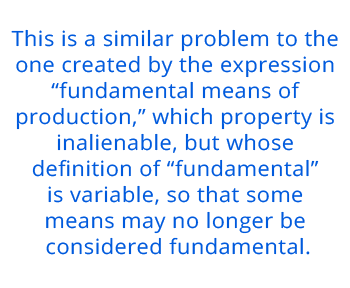
On the one hand, the government “reaffirms” that "TCPs have the same social security benefits as those in the “state sector”. According to Minister of Economy Alejandro Gil, “We start from the principle that there is only one economy. There is not a state economy and a non-state one. We are taking steps so that the Economic Plan recognizes all economic actors. There are no us versus them. We are all one…" Nevertheless, the current Labor Code, to the contrary, discriminates in its treatment pf employees working in one sector as opposed to the other, according to the forms of ownership of each.
A study on the Labor Code “has not been able to establish the legal equality of labor rights and obligations among salaried workers in the state sector and workers hired in the non-state sector,” because while in the state sector “labor rights and broad social benefits are valid, minimum standards are imposed for contracted private workers.” [6]
Further, the lack of proper legislation for MSMEs until this past August has had negative consequences, and not only for productive relationships. Although when ultimately adopted, it limited the commercial relationships among existing associative forms, and with other national and foreign economic actors (preventing their dynamism and production), it also impedes the state from developing effective mechanisms for guaranteeing labor rights for the TCPs.
Similarly, there are discrepancies between the state and private sector in the ability of employees to organize. While the effectiveness of labor representation by the Cuban trade union organization is questionable, in the state sector the administration of the enterprise is recognized as separate from its workers, while in the private sector, employers and the workers they hire are integrated under equal conditions as members of one union. [7]
As part of this process, a cultural narrative has insisted on casually associating any aperture to private economic activity as “neoliberalism.”
Cuba’s main newspaper, Granma, has helped spread that narrative. Despite declarations to the contrary by the Communist Party and the government regarding private economic activity and the total lack of basis for branding it as “neoliberal”, we should not underestimate the influence of that narrative in engendering disparate treatment for the private sector and excluding alternative approaches to protect workers in the sector.
For its part, civil society—including economists Oscar Fernández and Pedro Monreal—have proposed possible topics for future legislation of the private sector. Their interest is not a “whim.” Monreal estimated that establishing MSMEs could increase Cuba’s Gross Domestic Product by 1.5 to 1.7%.
However, the government is aware of several of the problems mentioned here. Official position statements have emphasized the importance of “assuring that initiatives conform to established norms and are based on well-defined rules so as to avoid erroneous interpretations or personal judgments.”
It is a call to eliminate the unwritten rules and negative cultural attitudes toward the TCPs, which continue to hinder the economic reform process. The new legislative package on MSMEs is good news, likely driven by the protests of July 11, 2020.
Private Property, Market, and Competition
The new constitutional provisions on private property establish its “complementary role” in the economy. Nonetheless, it will occupy and increasing share of space in the national economy.
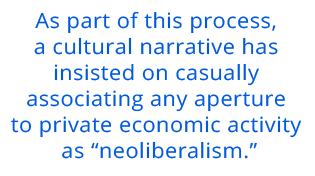
Since 2004, Johana Odriozola—then a professor at the University of Havana and currently Vice Minister of Economy and Planning—argued for the regulation of anticompetitive practices in areas such as agricultural markets, industrial and artisanal products, products and services offered by TCPs, and goods and services being sold in convertible currency. [8]
Odriozola also proposed imposing competition within the state sector itself, in the area of foreign trade, which in cases relies on more than one governmental entity to carry out its activities. Additionally, she has advocated promoting competition in the importation of paints, varnishes, and new tires, in competition with national industry. In these examples, “competition is/was existed even within the same system.”
The New Constitution recognizes the market’s existence, but is silent on the creation of institutional frameworks and principles for its operation, such as: the right of all economic actors to have equal access to the markets of their outputs and inputs, the regulation of competition, the prohibition of monopolistic practices (regardless of the type of ownership), the adoption of principles of consumer protection and public policies for economic contracting.
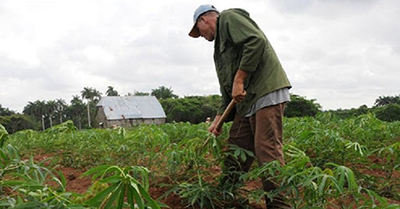
Competition has existed in practice, even without a recognition of the principle of freedom of enterprise, but also without acknowledging the true nature of the private activity. The use of the euphemistic term “self-employed workers” for TCPs is inapt, given that the TCPs may in turn hire scores of workers of their own for their private businesses.
The use of the term “self-employed workers” for private business activity denies them the protection of the framework regulating commercial activity, denying them protections of operating under the existing Commercial Code,[9] (albeit often not invoked), including a listing in the Mercantile Registry.
There is consensus that the status of independent legal entity grants protections in the areas of contracting, improves access to financing, clarifies ownership of assets, limits the liability of the owners and allows reorganization in the case of bankruptcy. As of this writing, and because of the designations of the private businesses as “self-employed workers”, they do not enjoy any of the foregoing rights.
For all these reasons, there has long been a need to adopt legislation and implement regulations in the field of commercial enterprises. The recently approved DL 46/2021 recognizes MSMEs as (art. 11) as “mercantile enterprises”, adopting the form of limited liability companies, by public deed registered in the Mercantile Registry. Limited Liability Companies (LLCs) are regulated by the Commercial Code; they have existed in the past in Cuba, as provided in the 1929 regulations that modified the Fourteenth Section of the Commercial Code.
According to that regulation, in an LLC, associates do not have obligations beyond their own contribution to the entity, so they were not personally liable for entity debt; they could engage in any legal form of business (with the exception of the activities listed in Article 123 of the Commercial Code); they could have from two to ten partners; and their business names could bear the names of one or more of the partners, followed by the words “Limited Company.”
The book Las Empresas de Cuba, by Guillermo Jiménez Soler, documents the existence of certain limited liability companies in Cuba, but the number of limited liability companies was always much larger due to their rights granted by the Commercial Code.
At the international level, LLCs are generally recognized as useful in small- and medium-scale commerce. The law under which they are created sets forth most of the rules for their operation; one author indicates that there is less autonomy, because in LLCs “everything is imposed by law [and] very little is left to the will of the associates.”
Cultural Attitudes Toward Private Property and the Market in Cuban Socialism
This idea, formulated by Marta Moreno, has been at the core of the debate about the relationship between property and socialism in Cuba: “The dominant form of property conditions the societal relationship between production, distribution, exchange, and consumption.” Therein, the “socialist property of all people”—and, correspondingly, the state enterprise—has been considered the main form of ownership within a socialist regime.
Along those lines, the document titled “Ideas, Concepts and Guidelines of the 8th PCC Congress” (2021) states: “We can never forget that the ownership of all people over the fundamental means of production constitutes the basis of the workers’ real power.” A fundamental principle, according to official statements, is that the state enterprise—the basis of socialism—which can and should be efficient, must not be harmed or relegated to the background.”
The constitutional provision on state ownership embodies the idea that its primacy is a basis for socialism. Thus, it is regulated as part of the more general outline of the “Economic Foundations” of the Cuban State.
Article 18 adds to the concept of “the property of all people” the principle of a directed or planned economy. Article 19 grants the state the ability to direct, regulate, and control economic activity; and Article 20 regulates the concentration of property in non-state natural or legal persons in order to guarantee the “more equal redistribution of wealth” and the preservation of “limits that are compatible with the socialist values of equity and social justice.”
Further reflection on the theoretical and ideological bases of these concepts reveals issues that are rarely addressed by the Cuban official discourse and the public debate, which are part of the cultural framework in which the new regulation on private ownership in Cuba must function.
Among these issues is the lack of differentiation between the nationalization of property with respect to social property, a classic historical dilemma in the construction of socialism, which has been sustained over time in Cuba.
This lack of distinction creates structural problems in asserting property rights. The universal owner is the state itself and not, for example, workers' associations. The “people” are, theoretically, the owner(s) of a given resource, but they do not have owners’ rights over the property in question.
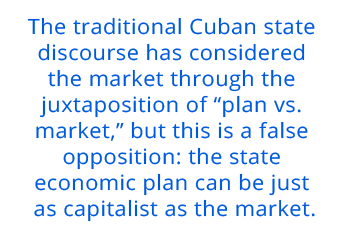
In this way, private property has been challenged wherein state property is defended as the only “socialist” property, but no progress has been made towards a democratic regime where property is under the real control of its social owners.
The problem is both political and technical. First, the dichotomy between private property and state property has cloaked citizen disempowerment resulting from the lack of access to property rights. Second, the concept of “people”, as owners of social property, is difficult to render in the sphere of law.
For almost all of Cuba’s socialist history, the market has been considered synonymous with “capitalism,” which justified its virtual closure. The 1976 Constitution did not even mention the word “market.” However, in critical Marxism, abolishing the market or prohibiting private property by law, without having created the necessary conditions for social ownership of property, leads to what Marx called “political communism” or “despotic communism.”
The traditional Cuban state discourse has considered the market through the juxtaposition of “plan vs. market,” but this is a false opposition: the state economic plan can be just as capitalist as the market. Socialism is not reduced to the existence of a central plan, nor to mere opposition to the market: it supposes both the existence of the market and its regulation as the expression of social life.
Private Property and Concentration of Wealth
Within Cuba, the discussion about private property has focused on avoiding its concentration and avoiding the inequality it generates. This narrative identifies one of the most problematic fields of contemporary political life at the international level. The expression of this concern in the New Constitution is consistent, then, with global alarm about the concentration of income and in favor of the need for a just distribution of resources.
This international reaction to the enormous concentration of property—for example, in land and claims to natural patrimony—has led to a flourishing of “communist” ideas around the globe, in their original sense of the word: “defending common goods.” Reflecting on what are common goods is also a relevant exercise for Cuba - in order to avoid issues generated by private property but also by the well-known inefficiency of its sole state enterprises. For the latter, it offers solutions to the bureaucratic expropriation of social property, a persistent evil in Cuba.
However, Cuban regulation is not very “creative.” The New Constitution regulates state enterprises, not public enterprises. The problem grows when the Cuban system confuses what is public and what belongs to the state, and between the state and the government. In contrast, the notion of “public” also appearing in the New Constitution ensures that the state is not the only actor in solving public problems, highlighting the need to seek solutions together with other social actors and the need for social control over social property.
The New Constitution raises other issues on the topic of property. It consistently prohibits, from a socialist perspective, the concentration of private property, but not its role as exclusive state actor (monopolist). And it omits authorization, consistent with socialism, for self-management, co-management, savings accounts, community-owned enterprises, communes and other associative forms guided by the values of cooperation and solidarity.
Nor does it mention issues of home economics, autonomous individual jobs (not to be confused with what they call in Cuba "self-employment"), micro-enterprises, or popular networks of producers or supplies. It does not explore the principles of the so-called “social and solidarity economy,” a trend that has been spreading in several countries due to its potential to address pressing issues of employment and provision of services to promote inclusion and social cohesion.
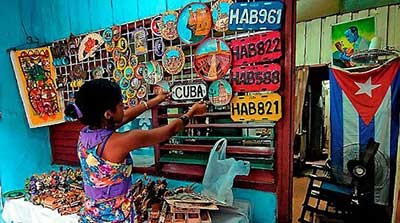
On the other hand, there has been less deliberation in Cuba on how to expand the democratic defense of property rights: that is, the consecration of rights to own property and have access to property.
The central principle of the New Constitution is that all forms of property have a social purpose: they grant rights, but they also require duties, which are bound to a social function. It is the definite starting point for a democratic conception of property—contrary to the exclusive and excluding meaning of typically capitalist private property—but the text falls short of addressing items integral to this approach.
A right to access property, historically defended by popular sectors, is not mentioned. Other constitutions, such as the Ecuadorian Constitution, do establish it, which is in line with the latest wave of constitutionalism at a global level.
Its inclusion would permit the Cuban State to adopt policies for the dispossessed to access property at a moment that reveals significant inequality with respect to women and racial minorities, for example.
The idea would also open the door to a renewed understanding of socialism: It is not more socialist to have fewer property owners, rather than to have more. Every citizen should own the conditions to get ahead in life. If property is power and power is property, much more needs to be done in this regard of empowering the majority of society with property rights.
[1] This article was written before the approval of these regulations pertaining to MSMEs, which I will not delve into because the focus of this article is a constitutional analysis of private property regulation. Regarding the new regulations, see Omar Everleny Villanueva and Aldo Álvarez.
[2] For details on property transformations after the economic reform, see Carmelo Mesa Lago: los cambios en la propiedad en las reformas económicas estructurales de Cuba.
[3] That content was removed from the new Cuban Constitution.
[4] Personal property was understood to be that which relies “on the income and savings from one's own work on the residence owned with the proper title of ownership, the other goods and objects that serve to satisfy the material and cultural needs of the person, and the ownership of means and instruments of personal or family work that are not used to exploit the work of others.” Armando Torres Santrayll: “Antecedentes históricos y principios que informan…” ob. cit.
[5] The real press and mortgage guarantees can only be constituted in favor of financial institutions, and on real estate, which can be homes located in vacation zones and empty lots. See Jennifer García Capote, La prenda y la hipoteca, garantías reales. Una mirada jurídica a su nueva regulación en Cuba. If the legislator's interest was to protect housing as its own right, this would entail a special regulation aimed at de-commodifying that right, that is, placing the conditions of access to housing outside the market.
[6] These differences can be seen in: the type of contract (definite/indefinite time), the number of paid vacation days, the right to return to one's job at the end of maternity leave, sickness benefits with short-term medical certification (less than six months), and a stipulated legal pathway so that workers can defend themselves from infractions to labor legislation by private employers (private business owners).
[7] For an in-depth investigation of this topic, see Fernando Luis Rojas: Cuba: el legado revolucionario y los dilemas de la izquierda y las fuerzas progresistas en América Latina. For an example of the political debate around current trade unionism in Cuba, see Alina B. López: Confirmación.
[8] Johana Odriozola Guitart: “Derecho de la competencia strictu sensu. ¿Mito o realidad para Cuba?,” Revista Cubana de Derecho, Issues 23 and 24, January–December 2004, pp. 108-111.
[9] This is the Spanish Commercial Code, in force since 1886 in Cuba, with subsequent modifications.
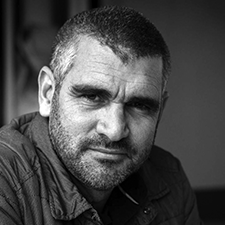
Julio César Guanche Zaldívar holds a law degree from the University of Havana (1997), a master’s degree in Public Law from the University of Valencia (2005), and a doctorate in Social Sciences, with a concentration in History, from the Facultad Latinoamericana de Ciencias Sociales (FLACSO-Ecuador) (2017).
He is a member of the Seminar on Latin America on Constitutional and Political Theory (SELA) at Yale University, the American Society for Legal History, the Political and Historical Sociology Research Group at FLACSO-Ecuador, a Cuba Citizenship Expert for the European Union Democracy Observatory on Citizenship, a member of the Cuba section of the Latin American Studies Association “LASA”, and the National Union of Writers and Artists of Cuba (UNEAC).

